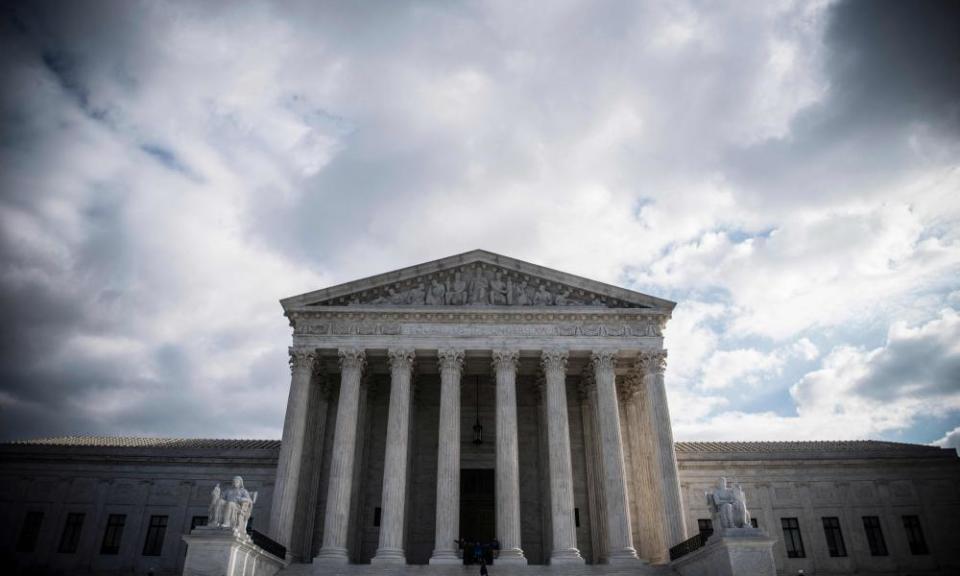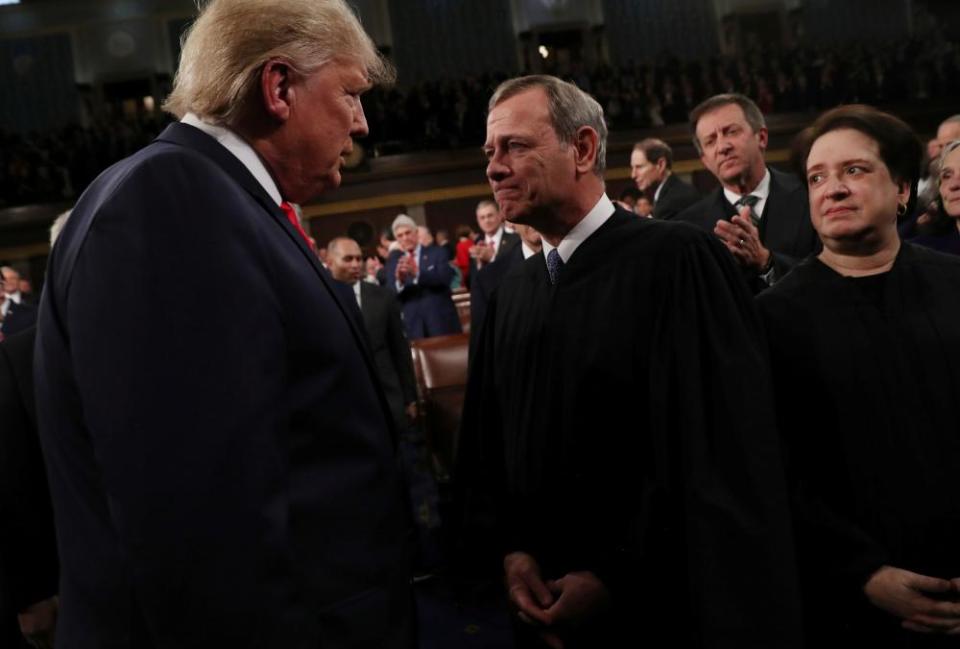The Agenda review: why Biden must expand the supreme court – fast

If Congress follows Joe Biden’s $1.9tn Covid relief bill with an even more ambitious infrastructure bill, the new president could quickly claim the mantle of most transformative president since Franklin D Roosevelt.
Related: Biden orders commission to study supreme court expansion and reform
But this short, powerful new book by the legal journalist Ian Millhiser pinpoints the gigantic threat that could thwart most of the progress embodied in those two pieces of landmark legislation: the new 6-3 conservative majority on the supreme court.
Writing clearly and succinctly, Millhiser dissects many of the worst opinions the modern court has rendered about voting rights, administrative law, religion and forced arbitration. After reading his cogent arguments, it becomes perfectly obvious why he thinks it’s necessary to end “with a note of alarm”.
The extreme conservatives now steering the highest court may pose the single greatest “existential threat to the Democratic party’s national ambitions – and, more importantly, to liberal democracy in the United States … a Republican supreme court will fundamentally alter the structure of the American system of government” and “is likely to build a nation where … only conservatives have the opportunity to govern”.
Trump’s greatest (and worst) achievement was the appointment of 234 federal judges, including three on the supreme court
How radical are these justices? When the American Bar Association polled experts, 85% of them predicted all or most of the Affordable Care Act would be upheld. Then four supreme court justices voted to repeal it in its entirety. Clarence Thomas has suggested his predecessors were absolutely right to strike down child labor laws more than a century ago. The conservative justices on the current court rarely side with their liberal colleagues in 5-4 decisions – Samuel Alito has never done so.
Chief Justice John Roberts dismantled much of the Voting Rights Act in 2013 and many observers think he is likely to join his newest colleague, Amy Coney Barrett, in a ruling this term that could complete the evisceration of the landmark civil rights legislation.
Of course, most of the damage to voting rights has been done – and scores of state legislatures are poised to follow the loathsome example of Georgia by doing everything they can to make minority voting every more difficult than it already is.
Millhiser does an especially good job of explaining the catastrophic effect of Roberts’ decision to no longer allow the justice department to require local jurisdictions to submit proposed voting rights law changes before they go into effect.
This, he writes, gave state lawmakers “a profound incentive to enact gerrymanders and other forms of voter suppression even if those laws will ultimately be invalidated by a court order”, because “if the state gets to run just one rigged election under the invalid law”, it will already have advanced the racist goals of the law’s authors.
Millhiser’s book is bulging with examples that prove that the same Republican justices who proclaim the need to rein in the executive branch whenever there is a Democrat in the White House have no trouble at all ignoring their imaginary “judicial philosophies” – as soon, say, as a Republican such as Donald Trump asserts a unilateral right to ban Muslims from entering the US.

Trump’s greatest (and worst) achievement was the appointment of 234 federal judges, including three for the supreme court and 54 for the courts of appeals. This means there is only one Biden administration initiative which is potentially even more important than the Covid and infrastructure bills.
Related: On the House review: John Boehner’s lament for pre-Trump Republicans
It is the newly appointed commission charged with carrying out Biden’s campaign promise to investigate whether or not membership of the supreme court should be expanded – something that can be accomplished by a simple act of Congress.
It’s no coincidence that Millhiser started making smart arguments to expand the court two years ago.
In the words of Aaron Belkin, whose advocacy group Take Back the Court pushed for the rapid creation of the new commission, the current court “is a danger to the health and wellbeing of the nation and even to democracy itself”.
“This White House judicial reform commission has a historic opportunity to both explain the gravity of the threat and to help contain it,” Belkin told USA Today.
This great short book makes it clear that the breadth of the new commission’s ambitions and the success of the Biden administration in carrying them out will be more important to our nation’s future than everything else the president and Congress accomplish.
The Agenda: How a Republican Supreme Court is Reshaping America is published in the US by Columbia Global Reports

 Yahoo Movies
Yahoo Movies 